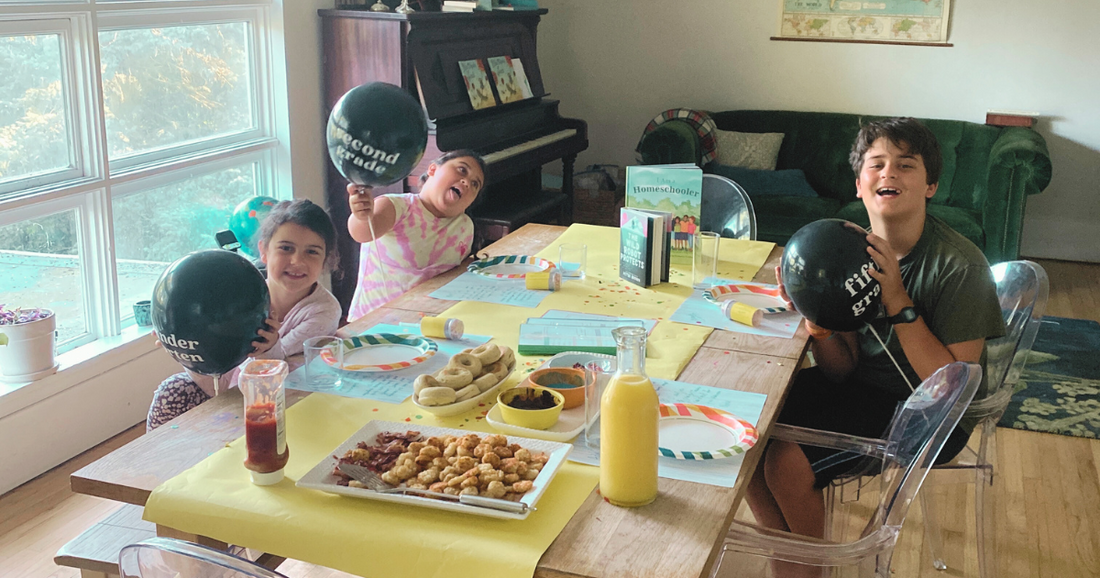My table is consistently messy. Its once nicely finished surface is almost gone, smattered with paint, featuring streaks of varying colors of marker and globs of dried glue. It is almost always covered in various projects typically abandoned for other creative endeavors. This sometimes still bothers me, but really, it shouldn't. It is proof that my educational philosophy is alive and well in our homeschool.
What is an educational philosophy? It is a philosophy that considers the nature and aims of education from both a theory and a practical perspective. But truly, it is the foundation of our homeschool. It is the why that keeps us going forward.
One day, we all took a brave and tentative step into homeschooling. This is rarely an easy decision. Going against the norm is not a sign-up sheet for an easy life of societal acceptance. When you push back against the cultural norm, you tend to be pushed yourself. This is why having an educational philosophy to spur you forward in your homeschool is essential for your everyday, going-through-the-trenches life.
So how do you discover your educational philosophy? Some people adhere to a specific educational philosophy like Charlotte Mason, Classical, or unschooling. However, I believe it's beneficial to examine the principles behind each philosophy and select the ones that resonate with you the most, or even create your own. This process is a journey of self-discovery and growth, and it's what makes homeschooling so engaging and rewarding.
Why is this so crucial? Because it shapes your perspective on everything, providing a solid foundation for your decisions and actions. It's like a compass that guides you through the challenges and triumphs of homeschooling, instilling a sense of confidence and reassurance in your choices.
It empowers you to make decisions peacefully and stick to them. My messy, paint-splattered table is a testament to the principles I hold dear: my children have the freedom and time to explore their creative ideas and endeavors. They are encouraged to delve into their interests, experiment without fear of judgment, and become creators, not just consumers.
Below are some reflection questions and prompts that you can use for journaling to develop an educational philosophy for your homeschooling:
- Jot down all the priorities related to your children's learning that come to mind.
- Explore different educational philosophies and write down principles that resonate with you.
- My educational philosophy will help me keep going when...
- Write three ways you have seen your educational philosophy in action this week.

